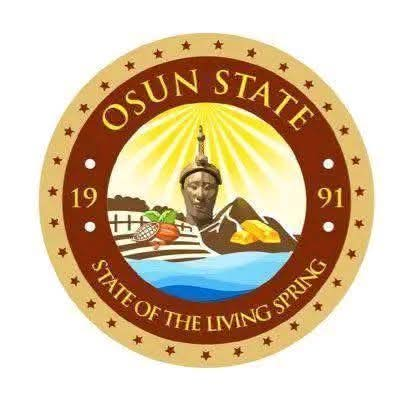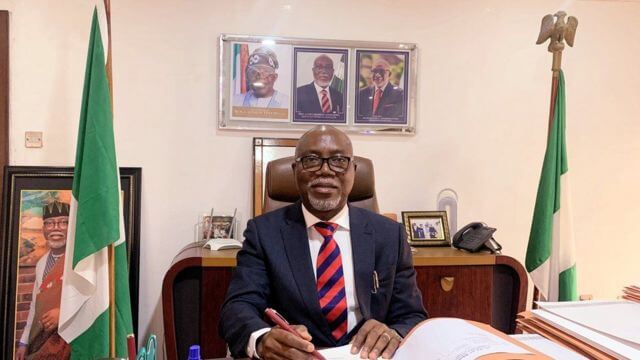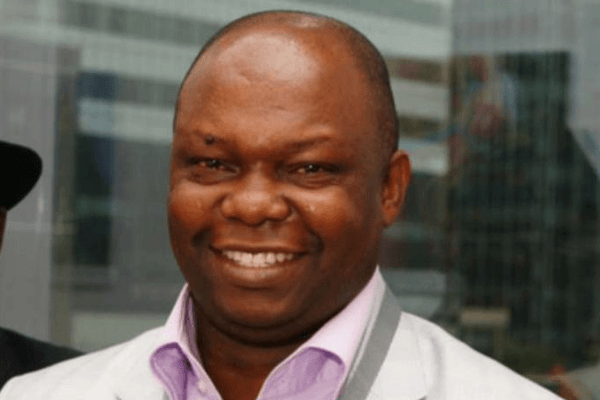Today is another Friday—a time for reflection and spiritual nourishment. If you are searching for a sermon that inspires sober contemplation, consider the profound words of the renowned African author Ayi Kwei Armah: “The Beautiful Ones Are Not Yet Born.” This thought resonates deeply with our current reality; we are in desperate need of “the beautiful ones”—individuals of integrity and moral fortitude—in every segment of Nigeria.
This value-laden phrase serves as a stark reminder to all humble readers, leaders, and followers that the ideal of moral and ethical purity remains elusive, even in the mosques and churches in Nigeria. We are outwordly religious, but apparently not spiritual! Our actions are antithetical to religious principles. The beauty of integrity and righteousness, which we long for in religion, seems always just out of reach—a distant aspiration rather than a reality, as evidenced by the shameful conduct of our leaders and managers of our collective patrimony.
The message of “The Beautiful Ones Are Not Yet Born” resonate deeply as we consider the recent scandal involving the National Hajj Commission of Nigeria (NAHCON). Hajj, often referred to as the pilgrimage to Makkah and Madinah, is the fifth pillar of Islam, meant to be a pure act of worship, performed with the utmost integrity and sincerity by those who have the financial means and physical capability. Unfortunately, politicians have historically corrupted this sacred pillar under the guise of subsidy and assistance to pilgrims. The post of Chairman of the Hajj Board is often seen as lucrative across the board.
But do we really need government subsidies and sponsorships for Hajj when Allah makes it obligatory only for those who have the means? The role of the government should be limited to coordination and travel facilitation—a role better suited for private sector Hajj operators. As the Quran states in Surah Al-Imran (3:97), “And Hajj (pilgrimage to Makkah) to the House (Ka’bah) is a duty that mankind owes to Allah, those who can afford the expenses (for one’s conveyance, provision, and residence).”
This sacred obligation is not just a ritual but a deeply spiritual journey that every Muslim who is able must undertake. However, the recent scandal involving NAHCON has cast a dark shadow over this holy and supposedly incorruptible Hajj endeavor.
The contrast between the actions of the current custodians of NAHCON and the exemplary leadership of Umar bin Abdulaziz, the revered eighth Umayyad Caliph, is striking. Umar bin Abdulaziz is often cited as a paragon of justice and humility, especially in his use of state assets and funds. It is said that he was so scrupulous in his management of public resources that he would not even use state oil in lamps for his personal activities. Instead, he would extinguish the state lamp and light his own when attending to personal matters, ensuring that no public asset was misused for private gain. This level of integrity and accountability is what is expected from those entrusted with the management of Hajj operations, yet the recent actions of NAHCON officials stand in stark contrast to this ideal.
Recent reports reveal that the Executive Chairman of NAHCON, along with other top officials, is currently under investigation by the Economic and Financial Crimes Commission (EFCC) for the alleged mismanagement of the N90 billion 2024 Hajj subsidy. The EFCC has reportedly recovered a total of SR314,098 from these officials, a clear indication of financial malpractice at the highest levels of the Commission.
The gravity of this scandal cannot be overstated. Hajj is a sacred duty, and the funds allocated for its organization are meant to facilitate the journey for millions of Muslims who place their trust in these institutions. Instead, these funds have been misappropriated by those entrusted with this sacred responsibility. The investigation also revealed that SR8,614,175.27, withdrawn from the N90 billion allocated by the Federal Government, remains unaccounted for by NAHCON.
Furthermore, the probe uncovered past financial malpractices, including payments for non-existent study tours and services not rendered, further deepening the scandal. The corruption within NAHCON is not just a betrayal of public trust but a direct affront to the sanctity of Islam. The Prophet Muhammad (peace be upon him) emphasized the importance of honesty and integrity, particularly in matters of public trust. In a hadith narrated by Ibn Umar, the Prophet said: “When a man deceives those who trust him, his place is in Hell.” (Sahih Muslim).
This scandal serves as a stark reminder of how easily even the most sacred institutions can be tainted by greed and corruption. It is a call to action for all Muslims to demand greater accountability and transparency from those who are entrusted with the organization of Hajj.
Conclusion
The actions of the NAHCON custodians are nothing short of shameful. They have corrupted the incorruptible, turning a sacred duty into a platform for personal gain. As Socrates once said, “He who is not contented with what he has, would not be contented with what he would like to have.” This quote underscores the insatiable greed that often leads to such moral decay. Similarly, the great Muslim philosopher Al-Ghazali warned, “The corruption of the worldly-minded is due to their greed for power and wealth.” These timeless words remind us of the dangers of allowing material desires to overshadow spiritual and ethical responsibilities.
The ongoing investigation by the EFCC must be thorough and transparent, ensuring that those responsible are held accountable. Only then can the sanctity of the fifth pillar of Islam be restored, and the trust of the millions of Muslims who undertake this holy journey be regained.
*Dr. Lukman Raimi is an Entrepreneurship Educator, legal researcher, and advocate for good governance.





